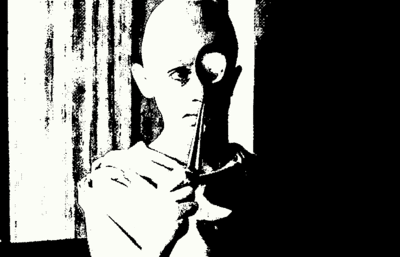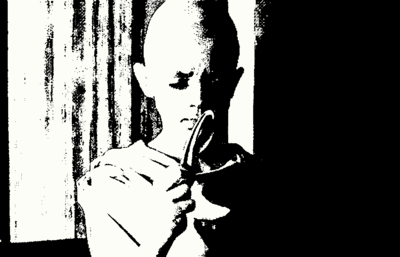On hammers and sandcastles
We build a sandcastle. Patiently trenching the ground dry then moist, lifting a cupped hand, drizzling sand, a flick of the wrist, and pat, pat, patting the walls into shape. Oh, enchanting sandcastle, here you are, as if you had always been there. But… , sandcastle, what are you made of? Are you made of our imagination or just grains of sand? Like computers. Are you a computer? and what does software eat?, sand? No answers and soon the castle's foundations wash away with the rising tide.
Humans consider themselves unique for their use of so-called tools. Tools are objects in innumerable shapes and here to help accomplish particular tasks, extending humans' physical abilities, outsourcing their mental capacities or modifiying their surrounding: lengthening the reach of an arm, accelerating the speed of travel, communicating on long-distance, recording ideas, keeping warm. These tools ought to be at one's unconditional command, but there is a law that questions the power structure between a tool and its operator, called the law of the instrument. This law states that making use of a tool we “tend to formulate our problems in such a way that the solutions to those problems demand precisely what we already happen to have at hand.” In other words, we tend to overly rely on a tool we know and are familiar with. Yes, it is tempting, if the only tool you have is a hammer, to treat everything as if it were a nail. So, who is operating who? Is it the hand gripping the hammer? or, is the wooden stick swinging the hand?
For the seminar On hammers and sandcastles we will consider tools in their broadest sense;
simple hardware, a hammer, a broom, a pencil;
complex machines, a bike a plotter, a car, an electronic circuit board;
tangible structures, a chair, a building, a road;
or intangible structures, language and words, software, an educational institution.
Who are they?, how do we use and misuse them?, how do they master us?
On the seminar days we will work together through conversations, exercises, punctual screenings, a shared wiki, and woodwork; creating our own hammer handles, possibly a sound workshop, and hopefully a common physical structures.
Next to the collective seminar days and throughout the semester each participant will conduct experimental research on a tool of choice. First, get to know your tool by investigating any mode of operation possible. Then, take it to pieces, bend and modify, or create from scratch.
For the outcome of this seminar there is no given shape but one restriction: work towards an object that will stay at the HfG for the use of your future fellow students. It can be a tool itself, a manual for using or misusing an existing structure, a report, practical, impractical, related to any so-called discipline, located in a classrom, the drawer of a workshop, the toilets, at a staircase, or, …, wherever.
“Play has something to do with attacking life in an unconventional manner.” There won't be any professionals in this seminar, we will question rather than answer, and at best, it will be a junk playground, designed by our autonomous work.
You can find the seminar's program outline here.
(a result is the outcome or consequence of a sequence of action or events)
^
|
\
\
|
| / ----> result
>>> thought >>>>>
r ^ V __> result
e <---^ loop V --------/
s ^ V
u <<<<<< tool <<<<<
l \
t |_________--\
|
\
V
result

